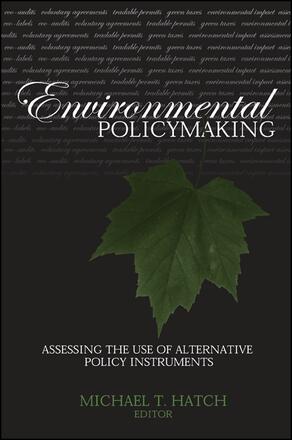
Environmental Policymaking
Assessing the Use of Alternative Policy Instruments
Alternative formats available from:
Case studies that assess the value of new approaches to environmental policymaking in the United States and abroad.
Description
The methods employed in the pursuit of environmental protection are often highly contested, leading to alternative policy approaches. This book details the frequently neglected topic of these alternative approaches to environmental policymaking through case studies drawn primarily from the United States, Germany, and Japan. Among the policy instruments analyzed are eco-audits, voluntary agreements, tradable permits, green taxes, environmental impact assessments, and command and control regulations. Also examined are international regulatory arrangements to encourage sustainable forestry management practices. Various evaluative criteria are applied to each case study, including environmental effectiveness, economic and political efficiency, administrative efficacy, and technological innovation.
Michael T. Hatch is Professor of Political Science at the University of the Pacific and the author of Politics and Nuclear Power: Energy Policy in Western Europe.